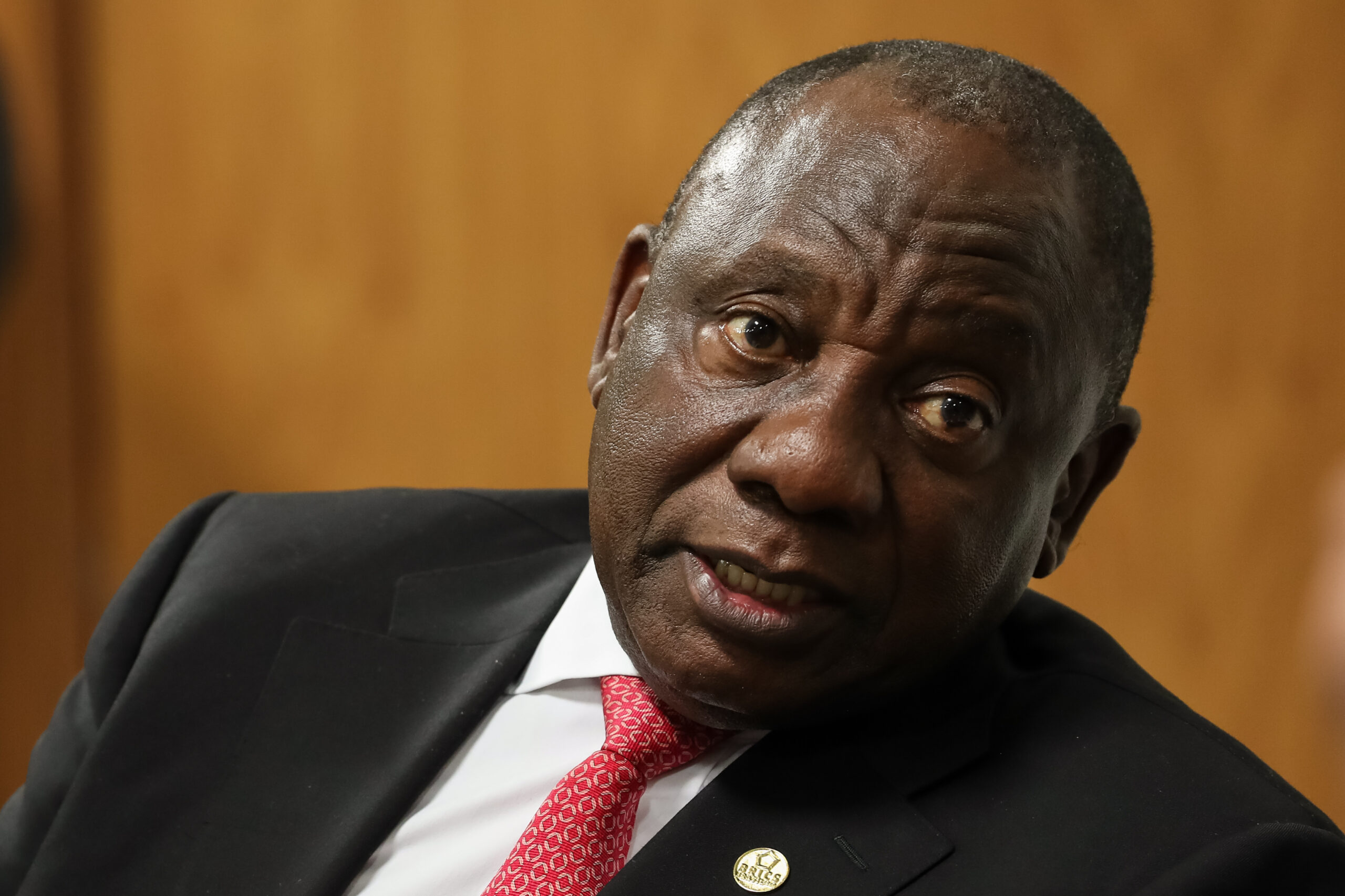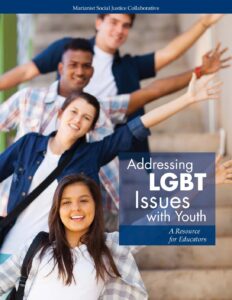The post-apartheid South African Constitution, from 1994, was the first in the world to outlaw discrimination based on sexual orientation. This inclusion led to broad judicial and legislative protection for LGBTQ rights, from the decriminalization of sexual behavior to marriage equality.
In Section 9, Clause 3, the Constitution says:
The state may not unfairly discriminate directly or indirectly against anyone on one or more grounds, including race, gender, sex, pregnancy, marital status, ethnic or social origin, colour, sexual orientation, age, disability, religion, conscience, belief, culture, language and birth.
And in Clause 4:
No person may unfairly discriminate directly or indirectly against anyone on one or more grounds in terms of subsection (3). National legislation must be enacted to prevent or prohibit unfair discrimination.
After a consultation process (in which the Catholic Church took part) in 2006, the Civil Union Act came into force, making South Africa the first country in Africa, and the fifth in the world, to legalize same-sex marriages. In many parts of Africa, homosexuality is outlawed. In Uganda, Ghana and Kenya, LGBTQ people can expect to be attacked, arrested, imprisoned and killed should their sexual orientation become known.
In a 2016 interview with CNN, Yoweri Museveni, the president of Uganda since 1986, shockingly called gay people “disgusting.” Uganda became the focus of anti-LGBTQ sentiment when Mr. Museveni, in 2013, signed an anti-gay bill that allowed harsh penalties to be metered out, including the death penalty. It must be noted that about 40 percent of Uganda is Catholic. Sadly, one might muse on what that means.
The response of Catholic bishops to the bill was to “reserve judgement,” but say that they did not support homosexuality. “We were for compassion, and we believe [homosexuals] can change,” said Monsignor John Baptist Kauta, secretary-general of the Uganda Episcopal Conference, in 2014. And a 2018 report from the Human Rights Watch gives a chilling insight into the situation in Ghana.
However, these are not the only countries in Africa where LGBTQ people are victimized. For example, in Eswatini, a small landlocked country in South Africa and the only absolute monarchy left on the continent, homosexuality is banned. Although the Democratic Republic of the Congo does not legally criminalize homosexuality, members of the LGBTQ community still face discrimination, violence and ex-communication.
The situation in South Africa’s neighboring Zimbabwe is also discriminatory; LGBTQ people are regularly subjected to violence. Do not be fooled, however, by the South African Constitution. Although non-discrimination tenets and rights are codified in the Constitution, there is a gulf between the law, attitudes and practices.
Many LGBTQ people in South Africa still live in fear. Although they may be protected by law, they still find themselves stigmatized and, at times, attacked in local communities. To be an LGBTQ person in South Africa is dangerous, as is being a woman because of the high rates of gender-based violence. Despite the Constitution, South Africa remains an inhospitable place for LGBTQ people.
“Many LGBTQ people in South Africa still live in fear. Although they may be protected by law, they still find themselves stigmatized and, at times, attacked in local communities.”
Many LGBTQ people still fear being known in their communities. To be known might mean, at best, being shunned and, at worst, being the victim of extreme violence or murder. The “corrective rape” of lesbians to “make them heterosexual” is still practiced in South Africa. Although the Catholic Church raised objections and made a submission to the proposed Civil Union Act in 2006, little else has been said publicly by the church.
A 2011 pew survey showed that 64 percent of South African Catholic respondents allegedly supported gay unions. Who precisely was surveyed and where in the country the poll was conducted may affect the high percentage. Catholics—and Christians in general in South Africa—tend to hold conservative, traditional and patriarchal views on sexuality. Many Christian communities use words like “abomination” and “sodomy” when addressing LGBTQ people.
After the election of Pope Francis in 2013, Cardinal Wilfrid Napier, then the archbishop of Durban, repeated the line that many politicians and church leaders use in Africa. They claim that being pressed to uphold the dignity of LGBTQ persons is an affront to African values and a new type of colonization. Asked specifically about same-sex unions, Cardinal Napier replied: “With the same-sex marriages, we are carrying out someone else’s agenda. It’s a new kind of slavery, with America saying you won’t get aid unless you distribute condoms [and] legalize homosexuality.”
It was curious, too, that Cardinal Napier denied being homophobic, which he may not be, by saying: “I can’t be accused of homophobia because I don’t know any homosexuals.” The cardinal, in the same interview, articulated very strongly the view that marriage is about men and women complementing each other for procreation.
There was a strong reaction to the his comments. The church was accused of a “medieval morality [that] marks a desperate attempt to claw back the special privileges of men, heterosexuals and procreative marital sex.”
Here’s another reaction:
“[I]t is clear that the Catholic Church entrenches a version of social relations and human sexuality based on male supremacy, the subordination of women, and the abjection of homosexuality. Its power, and yours by extension, is therefore premised on a system of gender and sexual inequalities presented as natural and normal. Perhaps your investment in the lives of sinful others is driven by an interest in protecting that power and the ideology that props it up.”
Cardinal Napier revealed the sharp tensions in the church’s hierarchy when he publicly criticized the German Cardinal Reinhard Marx, archbishop of Munich and Freising, on Twitter in 2016. Cardinal Marx, speaking in Dublin, said that church should “apologize for its scandalous treatment of gay people.” Cardinal Napier responded: “God help us! Next we’ll have to apologize for teaching that adultery is a sin!” He added, “Political correctness … is today’s major heresy”.
Few parishes display openly hospitable attitudes to the LGBTQ community in South Africa. Some LGBTQ persons report that they are up against bigoted and exclusionary attitudes in parishes. Few report hearing sermons telling them to repent and to make different choices, as if being LGBTQ is a personal choice. One person said that in their parish, a permanent deacon often addresses the “sin of homosexuality” and calls LGBTQ people “sodomites.”
In 2011, after the corrective rape and murder of a 13-year-old girl in eastern Johannesburg, there was more than one appeal for a pastoral response to the plight of LGBTQ people. However, to date, there has been no pastoral letter from the Southern African Catholic Bishops’ Conference on ministry to LGBTQ community.
This was disappointing, as the Catholic Church in South Africa, after the government, was one of the most significant respondents to the country’s H.I.V./AIDS pandemic. The church was not afraid to step in despite the so-called H.I.V. denialism of then-president Thabo Mbeki.
In 2008, the Jesuit-run parish of Holy Trinity, in downtown Johannesburg, started a ministry (the first and only parish in the country to do so) to the LGBTQ community. Although the local archbishop agreed to the ministry, there was no further institutional support. There was (and still is) a certain amount of condemnation from other clergy and parishes.
Despite this, the community continues to be a hospitable place for all. The work at the parish was recently detailed in a book, Seeking Sanctuary: Stories of Sexuality, Faith and Migration, by John Marnell.
For many LGBTQ Catholics in South Africa, there is little support. Recently a mother told me that her family were devout and deeply committed Catholics. She explained that she knew that her son was gay from a young age.
When she heard about gay people being called “intrinsically disordered,” she decided to offer her services to teach catechism in her parish. She wanted to protect her son from being told he was “disordered.” She said her parish priest listened, but said nothing. He allowed her to teach catechism.
“We must remember that when LGBTQ people feel alienated or rejected, this often has ramifications on others—their families and extended families.”
She explained her desperation about the message her son might get from the church that he loved and felt at home in church, Later, however, her son learned what the church taught. So, he and his siblings decided to leave the church. They could not accept that their gifted, talented and intelligent younger brother was excluded from the church, and from love, because he was labelled “intrinsically disordered.”
There was great pain and tension that the church, which formerly meant so much to the family and brought them together week after week, the mother explained. But the church is now the source of division in the family. She, too, has stopped attending Mass.
We must remember that when LGBTQ people feel alienated or rejected, this often has ramifications on others—their families and extended families. Some might stay, but many choose to leave.
This same mother tells of more young people she knows who, with their families, have struggled and felt alienated and rejected from the church. However, there are clergy who will support and accompany LGBTQ people. In a podcast, a woman explains how she looked to some priests for assistance after ending her marriage because she had to be honest and say she was gay. Some, she said, accepted and loved her as a gay woman. Others saw her as a burden.
In South Africa, we still have a long way to go to realize the ideals of our Constitution. It remains to be seen if the church will, at some point, offer some guidelines for pastoral care. This would go a long way in beginning a necessary dialogue about the basic dignity that all human beings, made in the images and likeness of God, should be offered.




